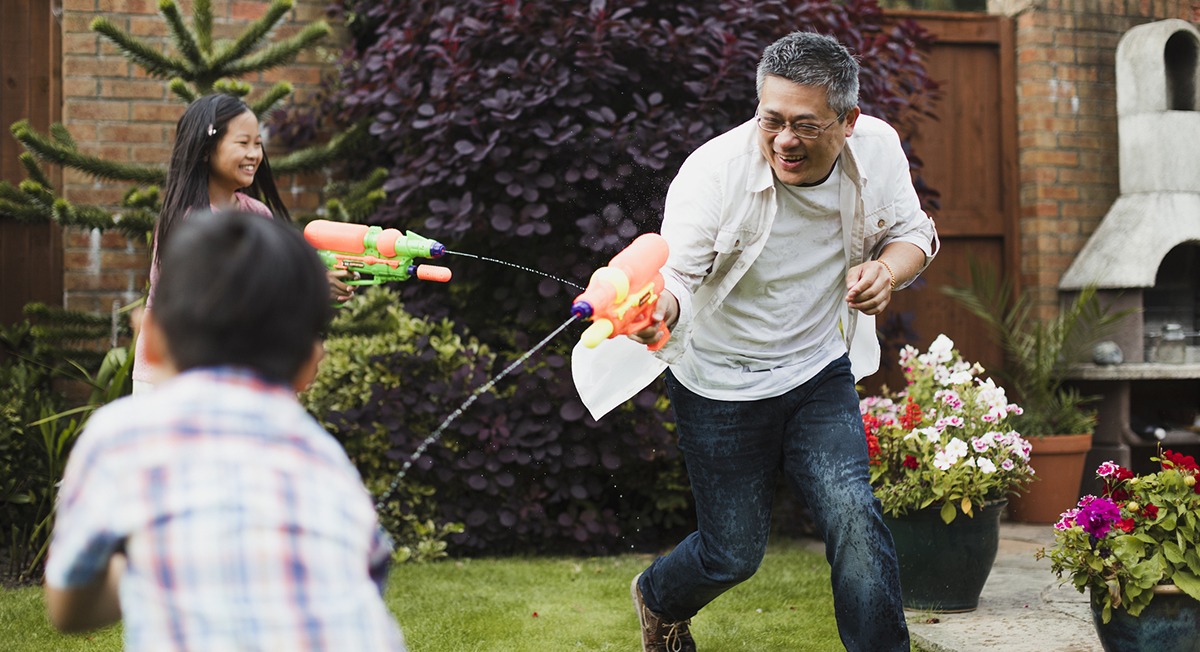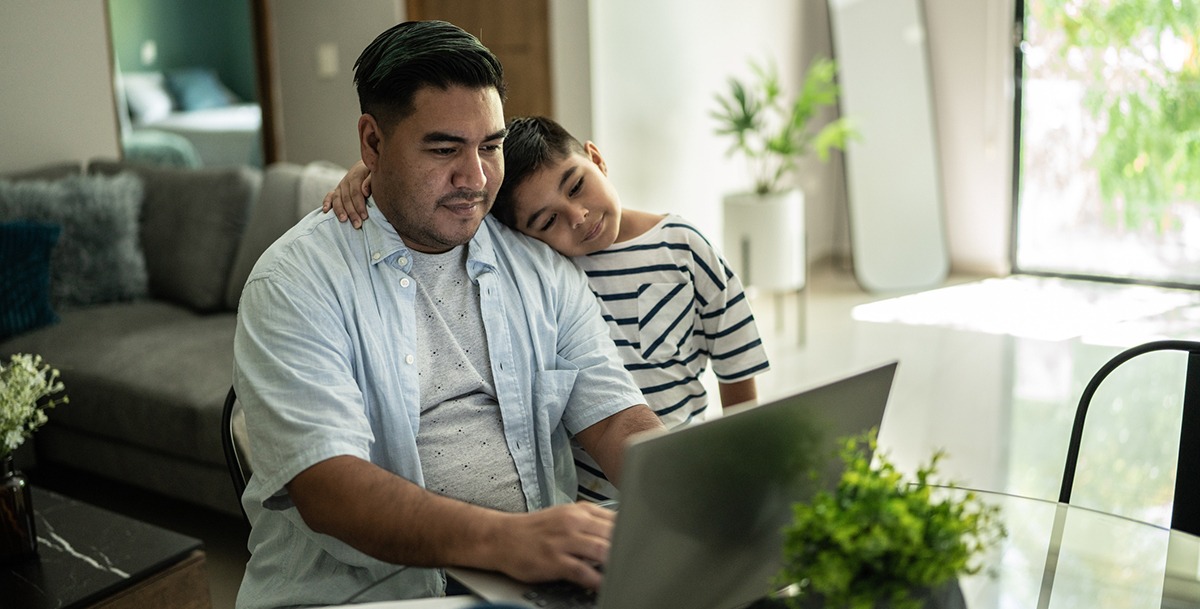Families who are recently divorced often find it hard to settle into co-parenting. For many families, what once was seemingly easy to do from within one home, one unit, and with one united force becomes difficult and riddled with disputes and arguments. But with a little work and determination to keep the focus on the kids, you can provide your children with the security, stability, and parental relationships they need to thrive.
Sometimes, though, putting relationship problems aside following a divorce isn’t always as simple as it sounds, and resentment can be a hard obstacle to overcome. Having to see your ex-partner when dropping off or picking up your child and having to act cordially and make agreeable decisions can be a challenge. However, with a little work, you can learn to remain calm, be consistent, and experience successful conflict resolution to make joint custody work for everyone. Oftentimes, you can even set the standard for your ex and become an example they will follow going forward.
Why Healthy Co-Parenting Is So Important
The emotional well-being of a child is dependent on the quality of the relationship children have with both of their divorced parents. Unless one parent is unfit or is involved in substance abuse or domestic violence, or has another issue, it is important for children to have both parents playing an active role in their lives, even if one parent doesn’t agree. Realizing that the best way to make sure your child has all their needs met is to help them maintain a close and enduring relationship with both parents.
When kids recognize they are more important than the conflict between their parents, they won’t feel responsible for the divorce, like kids often do. They will believe in your love for them prevailing, regardless of anything else that changes.

When co-parenting is done properly, children benefit in the following ways:
- They feel secure and confident in the love of both of their parents, adjust better to the new living environment, and have higher self-esteem.
- They have a better understanding of problem-solving. When children see their parents getting along and working together despite their breakup, they learn effective and peaceful problem-solving skills.
- They have a good, solid example to follow in their future relationships.
- They experience positive mental and emotional well-being and are more emotionally healthy. Children who have parents that successfully co-parent are less likely to develop. Issues like ADHD, depression, and anxiety.
Keys to Successful Co-Parenting in Arizona
The golden rule of successful co-parenting is to learn to separate your personal relationship with your ex from the interactions of co-parenting. Some parents find it easier to reinvent the relationship with their ex. Start over with a completely new relationship that is only based on the child’s well-being rather than either one of you. The most important foundation of co-parenting is putting your children’s needs before your own needs and putting your child’s emotions before your own, as well.
The following provides some tips for effective co-parenting:
Set Anger and Hurt Feelings Aside
Set resentment and anger aside. These emotions must take a back seat to your children’s needs. It is hard to do this, but learning to work in an obliging way with your ex is an important component of co-parenting. Making decisions together and interacting in a positive manner for the kids is vital to successful co-parenting. Try to remember that co-parenting is about your children’s happiness, well-being, and stability. It is not about your or your ex’s feelings. Your feelings don’t have to dictate how you behave. Let what is best for your children motivate you.
Never Vent to Your Child
It is important for parents to get their feelings out, but it is crucial to leave your kids out of your venting sessions about your child’s other parent. Avoid speaking negatively about your ex to your child in general. They have a right to have a loving relationship with both of their parents without feeling like one parent wronged the other parent.
Their relationship with both of you should be free of influence. Seek therapy if necessary or talk with friends or even a pet. Exercise also allows for a healthy outlet to let off pent-up frustration.

Focus on Your Children
When negative feelings start to swell up inside of you, refocus your attention on your children. Look at photos of your kids if it helps you to calm down and remember it’s about your children, not about you. Take a moment to engage in a positive activity with your children as an outlet for your attention.
Don’t Put Your Children in the Middle of the Fight
It may take many years for you to let go of all the resentment and hurt you may feel following divorce, but the necessity to compartmentalize those feelings is essential to your children’s well-being. Remember, these are your problems and issues, not your children’s. Make a promise not to use your child as a pawn in your emotional battles against your ex.
Furthermore, don’t ask your children to tell their other parent something conflicting. This puts them right in the middle of the fight and forces them to feel like they need to pick a side and betray one of their parents. They should never feel like they must pick one parent over the other because of the way one parent feels about the other. Keep your children out of your relationship issues by speaking to your ex in private.
Improving Communication with Your Co-Parent
Get in the mindset that you’re going to communicate with your ex for the well-being of your child, and everything you say to them will be for that purpose only. Consider everything you are going to say through the filter of your child. Ask yourself, “What consequences will this have for my child?”
When communicating with your ex, keep the focus on the child. If your ex veers from that, make a conscious effort to veer the attention back to the primary focus of discussing the child for the betterment of your child’s well-being. Any other communication is unnecessary. Establishing a conflict-free rapport with your ex is the main goal of your interactions with your ex.
Tips for better co-parenting communication:
- Use a business-style tone – Approach your communication efforts with your ex as you would a business relationship and speak or write as you would to a colleague. Be cordial, respectful, and neutral, and try to relax and speak evenly without emotion.
- Make requests – Rather than making demands or telling your ex what to do, try making a request in the form of a question. For example, “Do you think you could pick up the kids after school?” or “Would you be willing to get dinner for the kids tonight?”
- Listen to your ex – One of the most critical components of effective communication is listening, and even if there are disagreements between you and your ex, convey that you have understood their viewpoint. This does not mean you have to approve or agree, but you can establish respect and boundaries by listening to their opinion.
- Use self-control – You will have to communicate with your ex at least until your child turns 18 or longer. Refrain from overreacting when your ex pushes your buttons and avoid pushing their buttons yourself.
- Make a commitment to consistency – Establish a frequent line of communication to send a united front message to your children.
- Stay kid-focused – If a conversation with your ex digresses to a topic that is not about your children, re-focus it so that it is.
- Be mindful – Stay centered on your goals during the conversation. Learn to recognize the stressors that can turn the tables from a calm and productive conversation, and when you recognize them, stay conscious not to let the stress take over.
Co-Parenting Techniques for Productive Communication
Effective and productive communication with your child’s other parent takes practice. It won’t come easy overnight. Try using some of these communication prompts and conflict resolution tactics to fast-track the progress of your efforts.

Ask the Other Parent’s Opinion
This is a tried-and-true technique that can optimize positive communication between you and your co-parent. Pick an issue you don’t feel very strongly about to avoid a heated topic and ask for your ex’s opinion and input. Then listen. This shows them that you value their opinion and can lay a foundation of respect and trust for future discussion of more important issues down the road.
Offer an Apology
If you make a mistake or parenting error, apologize upfront and do so sincerely. Even if it’s something that happened long ago that you never made amends over, offer an apology. While apologizing can be powerful when delivered properly, it’s the forgiveness that can move the co-parenting relationship to another level.
Relax
Life is chaotic, and things happen. Plans don’t always work out like they were meant to, especially when dealing with kids. If something affects your schedule or impairs your day that has to do with your ex’s parenting time, let it slide. Show flexibility and be an example of that so that the next time you have a conflict that interrupts your parenting time, they will be more likely to let it slide, as well.
Realize Your Common Purpose
Remember that you are both only human and are doing the best you can. In fact, you’re both doing the exact same thing and have a similar purpose in life. You’re raising the same kids within the same community and with the same hardships and external factors. Be understanding of your ex’s efforts and have empathy for their trials as you would want them to do for you.
Maintaining a Co-Parenting Schedule in Arizona
Consistency is key in co-parenting. Having a predetermined schedule that the child can count on and look forward to is important in establishing stability for the child. There are co-parenting apps available that you can download that allow you to communicate without having to always speak directly about schedules, activities, and times.
Input events on the calendar that both of you can view to stay on the same page regarding parenting time. You can make notes to the other parent, and there are other features of these apps that can help both parents stay informed and on the same page with upcoming activities or changes to the schedule ahead of time.
Types of Co-Parenting
Just as there are many types of families and children, there are also different types of co-parenting styles. The three main types that are most often identified are parallel parenting (the most common type of co-parenting), conflicted co-parenting, and cooperative co-parenting. A description of each is below.
Parallel Co-Parenting
This style of co-parenting involves parents who have low conflict, but this may be because they have little communication. They emotionally disengage from one another, and one’s parenting has little to do with the others. They basically are parenting their children within two different realms, and those realms are unassociated with each other. Both households operate independently of the other. There is little consistency between the two homes, which is because the parents do not communicate much, if at all.
Conflicted Co-Parenting
This style of co-parenting is conflicted, as its name suggests, by poor communication and the failure of both parents to separate their emotions from their child’s well-being. This is a harmful style of co-parenting for children because the level of conflict that remains in the family results in negative emotional effects on the children.
Cooperative Co-Parenting
Cooperative co-parenting is the ideal type of co-parenting. It is the most beneficial for children because it is characterized by joint coordination of scheduling and parenting time, joint planning, and flexibility. It also provides parental support for each parent from the other parent. This conflict-free scenario involves parents resolving their differences cordially and without effect on the children. This is the best style of co-parenting because it fosters resilience in the children.

Healthy Co-Parenting in Arizona Is Possible
With hard work and focus, parents can learn to co-parent at a level that is close to or at the cooperative co-parenting goal. It does take a conscious effort, but it does get easier over time. Just like any skill, with practice, your co-parenting abilities will get better with time. Don’t give up and keep your focus on the kids, and you will prevail as an effective co-parent.Legal document services in Arizona are here to help you better understand your case and gain quick access to the relevant documents you need.
*Editor’s Note: This article was originally published Mar 30, 2018 and has been updated June 23, 2023

Jonathan Roeder is one of the founding partners of The Valley Law Group. He is an Arizona native who has dedicated his life and career to the service of others. After graduating salutatorian of his high school class, Jonathan attended beautiful and prestigious Pepperdine University, where he majored in Political Science. During his tenure at Pepperdine University, his passion for helping others grew after securing a clinical position with a residential treatment center for juveniles with substance addictions. Post-graduation, Jonathan returned to Arizona and served as a residential manager for mentally and physically disabled homes.

